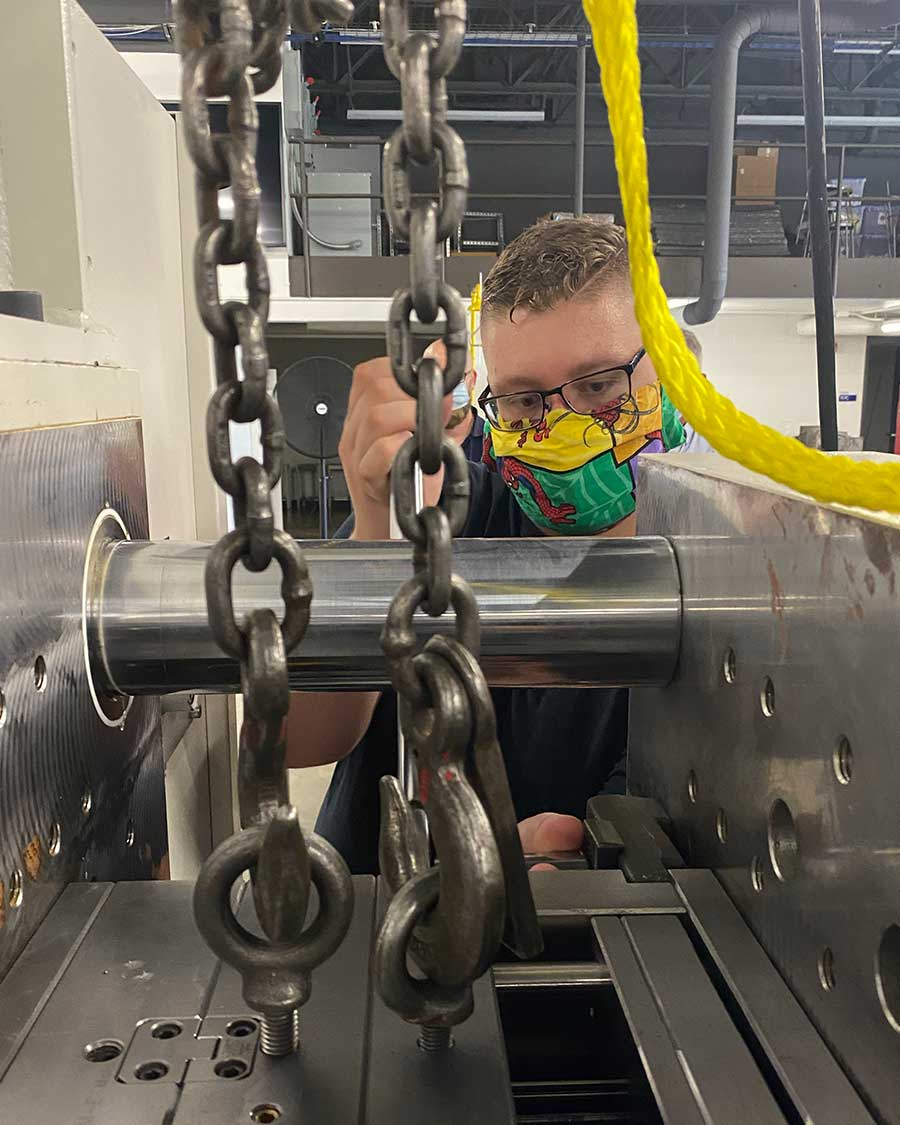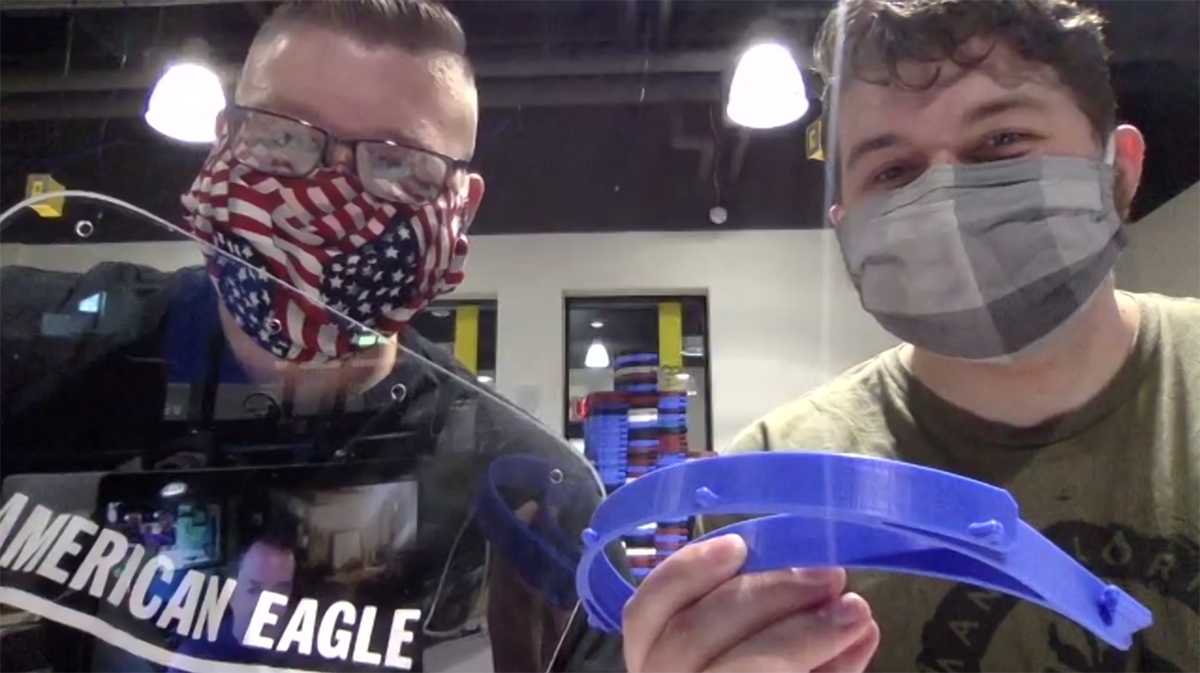July 16, 2020
Shawnee State University’s Plastics Engineering program has received help from two industrial leaders to enter a new phase in making protective face shields for COVID-19 responders.

Shawnee’s long-standing partnerships with leading technology companies DME and IMFLUX have resulted in a new production process on campus, designed and overseen by students, to produce headbands for shields to protect medical workers and others.
As the pandemic unfolded and the need for protective equipment grew, SSU students used 3D printing and a prototype to make face shields for area medical care providers. The project was overseen by students Adam Bilitzke and Nathan Dever.
But 3D printing is a long process and not suited for high-volume production. Shawnee sought help with faster injection molding from DME and IMFLUX, two technology companies who have worked with the SSU program for several years.
In addition to funding they have offered student internships and employment opportunities for graduates. Plastics Engineering instructor Larry “Skip” Miller reached out to them for support in accelerating the production process as soon as possible.
Both companies responded quickly. DME is a member of the Hillenbrand family of brands which includes Milacron injection molding business and is a global mold technologies leader. The company provided injection equipment technology that can rapidly shorten production time.

“Shawnee took a holistic view of the situation,” DME President Peter Smith explained. “They put up the design parameters and let us know that speed was a prerequisite, potentially for saving a life. We brought a modular standardization system with lean management principles to address this. As a result, DME was able to ship what was needed in days rather than weeks.”
DME provided the components in the injection process to get the resin into the mold, vent the excess air and cool the material enough to eject it from the mold in the shortest time possible, Smith explained.
Hamilton, Ohio-based IMFLUX designed and cut the details in the metal mold itself.
“We were eager to help,” IMFLUX Vice President of Mold Building and Operations Dan Lumpkin said. “We had the design and materials and were able to donate the time and steel. When Skip Miller called it was the perfect time.”
Lumpkin said that as a subsidiary of Procter and Gamble, IMFLUX has helped with plastic molding needs for a range of issues during COVID-19 and they’ve met those requests head-on.
“We built seven different molds for PPE and medical devices, including nasal swabs and headbands,” Lumpkin said.
“When we were doing the face shields before, the demand exceeded our capacity,” Engineering Program Chair Adam Miller said. “Now instead of taking two and a half hours per shield per printer to make, we will be able to produce one in about 30 seconds on our injection molding machine.”
Bilitzke, a senior majoring in plastics engineering, said the process is very straightforward. “We have clear plastic stock that acts as the shield covering your face. We have been printing the headbands that have the pegs that line up and pop into holes we drill into the shields.”
“We’ve been buying the clear stock for the shield from a company based in northern Ohio,” said Dever, a dual major in plastics engineering and political science. “We have a master key for that and trace and cut it every time. We grind off the edges for a smooth look. We have a key to line the holes up with pegs on the headband. We use a thermo-forming process to melt it to give a bend in it, take the tension off the band, and fit it perfectly.”
Dever and Bilitzke were busy throughout spring and early summer managing 14 printers, each producing a headband every two and a half hours. The mold and technology from IMFLUX and DME arrived in early July and will work on only one machine, but at one three-hundredth of the time to produce each headband.
“I’m very proud of how our students taking on this effort to help our community through the pandemic,” instructor Skip Miller said. “I’m also very thankful for the help from IMFLUX and DME. Their willingness to help the students make the process of making the face shields more efficient was invaluable in this situation.”
Shawnee has found a win-win in its partnerships with these companies while helping organizations in need of protective equipment, and the students have found connections and job opportunities in the field as a result.
“We’ve had a long-standing relationship with Shawnee,” Lumpkin said of IMFLUX. “We’ve been employing a lot of Shawnee graduates in plastics, we’ve forged a good partnership in recruitment, donated technology for the labs. We attend a career fair each year and on average hire at least one student from the program each year as well.”
“We have enjoyed a good working relationship with a college that focuses on developing the next generation of talent to take us in the industry to the next level,” DME President Peter Smith said.
Any organization interested in purchasing shields through the program can email Adam Miller, amiller2@shawnee.edu .
